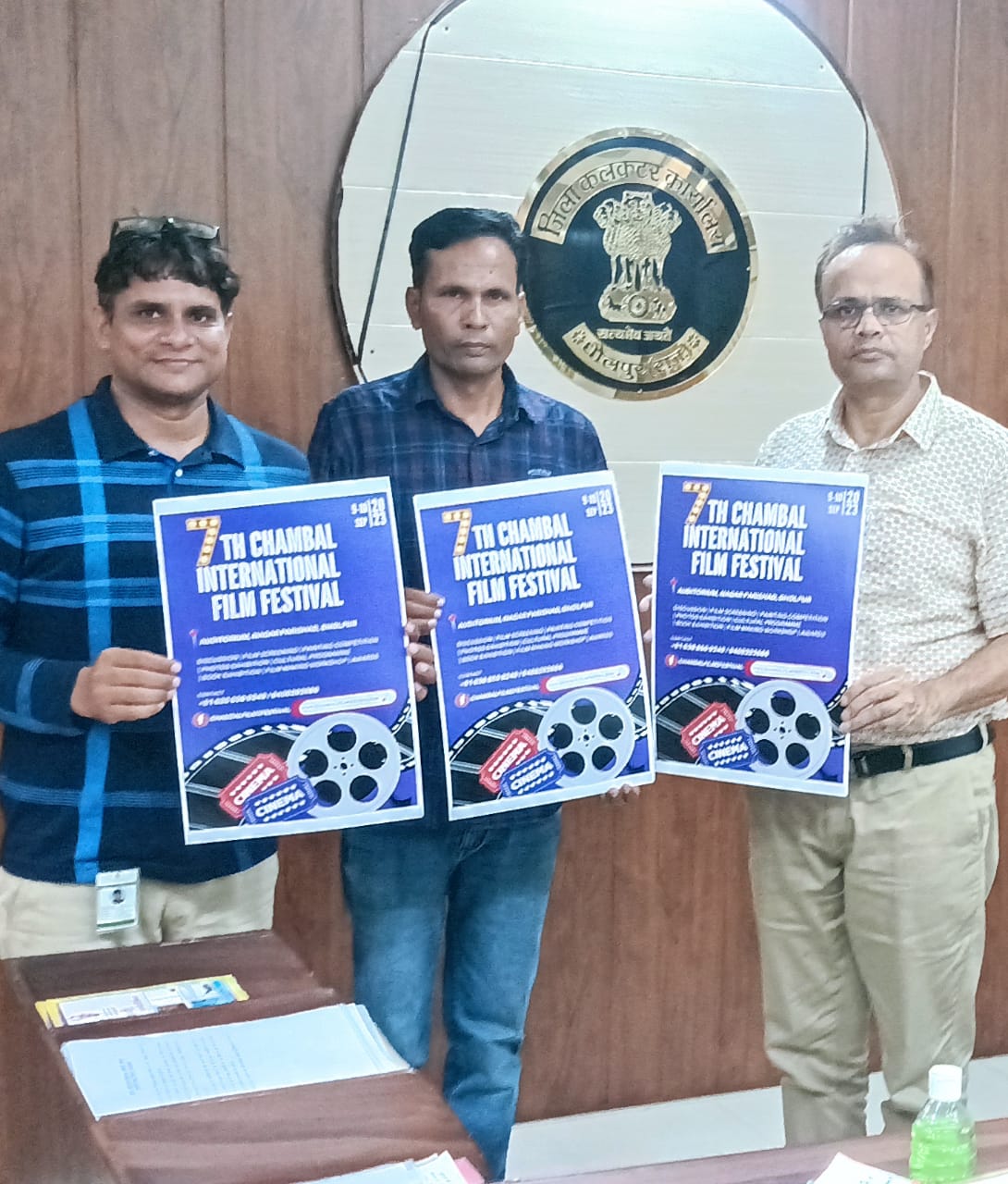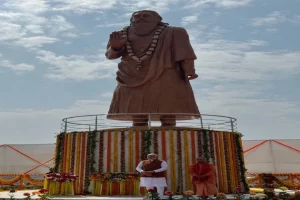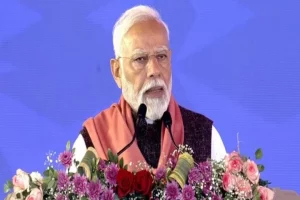As prominent Indian cities are touching up to welcome G20 guests in all prominent cities of India, a nondescript and erstwhile notorious region of the country will be a venue of cinema festival where films of 32 countries will be screened. Named Chambal Film Festival and efforts of local enthusiasts, the festival is an annual affair and has extended to other smaller towns such as Ayodhya, Gorakhpur and Varanasi in recent years.
The festival will be organised on September 9-10 in the auditorium of the municipality of Dholpur, Uttar Pradesh, and will see screening of around 103 movies, documentaries and short films coming from 32 countries including America, Taiwan, Britain, Australia, Spain, Turkey, Portugal, Egypt and Vietnam.
Chief organiser of the festival, Dr Shah Alam Rana told India Narrative that around 184 entries were received from across the globe and the jury zeroed in on 103 movies that will be showcased at different screens at the venue throughout two days of the festival.
He added that the jury of this small town festival is not small in stature. “It has Dr Anusha Srinivasan, an award-winning writer-director; model-actress Manya Pathak who earned fame with Zee TV serial Dilli Darling; Albanian filmmaker-writer Valmir Tertini; renowned Azerbaijani novelist and filmmaker Jalaladdin Gasimov; and Professor Mohan Das who is also the chairman of the jury.
Jalaladdin Gasimov uncovers how Stalin’s Bolsheviks were gathering money from banks in Tbilisi. Documentary short STALIN’S DARK PAST is based on real stories from archives. @jalaladding #documentary #shortfilm #filmfestival #stalinsdarkpast #stalin #bolshevik #ussr #russia #isff pic.twitter.com/QsW2jn5AUa
— International Shorts Film Festival (@shorts_ff) April 11, 2019
The festival in Chambal has been the brainchild of Dr Shah Alam Rana, an enthusiast who traversed ravines of Chambal on bicycle few years ago and made it a mission of his life to change the reputation of the region as den of dacoits to home of revolutionaries and nursery of nation-builders.
His travels have now been published as a book Beehad Mein Cycle. It documents stories of freedom struggle fought in Chambal, widespread poverty and reasons why being dacoit was the only route to fight pains germinating from penury. “Most importantly, it tells the stories of dacoits who quit guns to serve the society. They are in a huge number and many of them also assist in our cultural programmes like film festivals. Plus, people here have preserved memories of freedom fighters like Ram Prasad Bismil and others, but very few people in India are aware of this fact. In many places, libraries have been established in memory of such freedom fighters. This is the picture of Chambal we want to present to the world,” said Alam.
Alam said that the idea of a film festival in Chambal took birth around 10 years ago when he saw the potential of a film festival in organising people and making positive ideas popular.
Film ‘Safaibaaz- The Scavenger’ received ‘K Asif Chambal International Film Festival’ Award held on 25th September at Etawah. This is 7th international award received by the film.
Film will be released on 2nd October in UP theaters. pic.twitter.com/wtCpV7prK0— Dr. Avneesh Singh (@DrAvneeshSingh2) September 25, 2021
“We had experimented this earlier in a small town like Ayodhya in 2007 and based on widespread public response, we took it to other towns,” he said.
Alam founded his group Awam Ka Cinema in 2006 and started organising film festivals in Ayodhya and other small towns in 2007. Thanks to Alam and his local friends, Ayodhya, which doesn’t have a single cinema hall, sees the screening of around 50 movies of various types for three days on a big screen. Any public place like the auditorium of Ram Manohar Lohia Avadh University is used to screen the movies, Alam told India Narrative.
An English portal while admiring the efforts of the Awam Ka Cinema wrote: “Say Ayodhya, and the Ram Mandir is the first thing that comes to our minds. It is almost as if there is no Ayodhya beyond Ram Temple. What about the city’s history? Its culture? Its people? These are the questions that compelled Shah Alam, an activist and a writer who has devoted life to preserve revolutionaries of Eastern UP, Central UP and the Chambal region. To further the promotion of Ayodhya, Alam and his colleagues organise a three-day film festival in the town and even some glitterati come to be part of this gala gleefully.”
Locals, who are usually screen-starved, throng to the festivals in their towns. “The festival remains open to all and is free of cost. Hence, a large number of locals come to watch movies which otherwise remain beyond their reach,” said Alam. He added that it’s only because of the popularity of these festivals they are continuously being organised year after year.
Feeling Grateful and humbled that our Web Series ‘#BPO‘ has been Awarded in the category of Best Web Series in 16th Ayodhya International Film Festival, 2022. 🎬🏆🙌🔱❤️🔥😇#shanabhattacharya #actress #actresslife #webseries #internationalfilmfestival #award #proudmoment #poster pic.twitter.com/uzv6qUV7vn
— Shana Bhattacharya (@ActressShana) November 17, 2022
Alam said that when he started in 2007 and decided to keep the festival free of sponsorship and political interference, it was difficult to organise such a venture. “But residents of Ayodhya like Ashok Srivastava Advocate, Vineet Maurya, Afaque, Md Tufail, Ravindra Mishra and Rajesh Gupta landed their support to make it happen. Initially, we were also apprehensive about the response of local people. But, to our astonishment, people enthusiastically participated in it. Since we were averse to any monetary support or financial sponsorship, people helped us with organising tents, food and lodging for guests,” said Alam.
Alam added that his biggest supporter in Ayodhya has been Mahant Yugal Kishore Sharan Shastri, who is a priest at Ram Janaki Temple. “Whenever in Ayodhya, I stay with him in the temple. Even my voter ID card has the address of the temple. He is my pillar of support and an indefatigable fighter for communal amity,” said Alam.



















